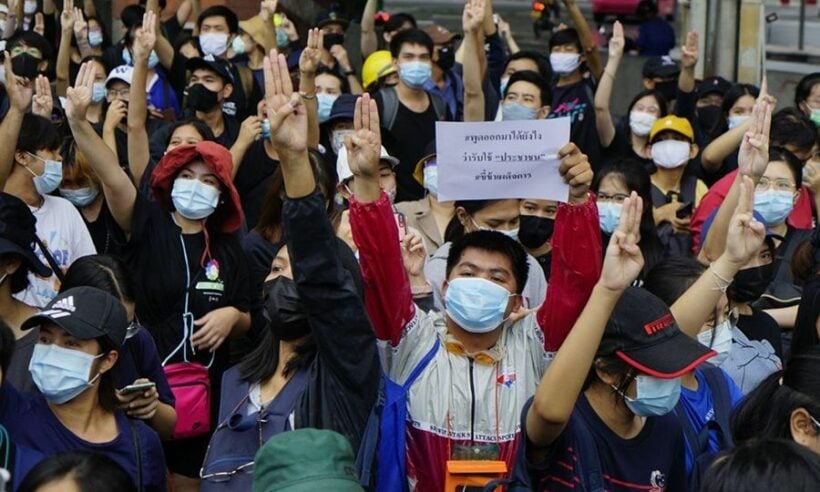Pro-democracy movement making little headway… monarchy’s powers remain untouched

The cost of pushing for change in 2020 by Thailand’s pro-democracy movement is still being splashed all over the news after more than 55 protesters sustained injuries at rally sites, mostly minor. And, as the year comes to an end, protest leaders say they are taking a break, only to come back stronger in 2021.
But some question whether the fervent effort by thousands of students to call into question the nation’s charter and demand amendments really made any sizeable difference. The monarchy’s place in the constitution remains unchanged as well as the military’s hold on power, with a complete hold on all Senate seats… and votes.
However, such sizeable protests have clearly made an impact as precedents were set, namely in some protesters’ bold actions to ignore the nation’s Lèse Majesté law that ban criticism of the country’s revered monarchy, with consequences of breaking that law including prison time of up to 15 years. The young students have also seen themselves polarised from much of Thailand’s conservative society, including the ripping apart of many families over the matter.
Constitutional drafts to change the 2017 Charter paved the way for the setting up of a Constitution Drafting Assembly, but the chapter relating to the monarchy remains unaffected, with a refusal of the fragile conservative coalition government refusing to entertain any such amendments.
A joint sitting of the parliament also rejected the “people’s bill,” which was proposed by the civic group iLaw. Such a bill would have made a constitutional rewrite possible by a fully-elected charter-drafting assembly, which would empower the assembly to include the chapter related to the monarchy’s powers to be amended.
Despite it being backed by around 100,000 voters, the denial of the first-ever voter-driven charter amendment motion to be debated by Parliament, dealt a blow to the student-led anti-establishment movement, which aimed to banish the 2014 military coup from its current stronghold.
Parliament’s decision to reject such amendments, that would curb royal powers, signals that the fight for change still has a long and rocky road ahead. Despite protest leaders demanding a new, democratic Constitution, the resignation of Thai PM Prayut Chan-o-cha and reform of the monarchy, nothing has significantly changed as of now.
Currently, the 2017 Constitution remains unchange as 2019’s general elections ended up with a ‘stacked’ senate with appointed military or junta members. The situation makes it difficult, if not impossible, to pass anything that was against the wishes of the military as they hold all 250 votes in the Senate.
Parliament’s decision to pass the 2 amendment drafts are just the start of a long approval process as each amendment requires a 2nd and 3rd reading with results expected in January. If the amendment drafts do pass a 3rd reading, they will then be put to a national referendum as they involve changes to the process of amending the Constitution.
For now, the protest groups say they will continue to push for change, but seem to remain undaunted.
SOURCE: Thai PBS World
Latest Thailand News
Follow The Thaiger on Google News:


























